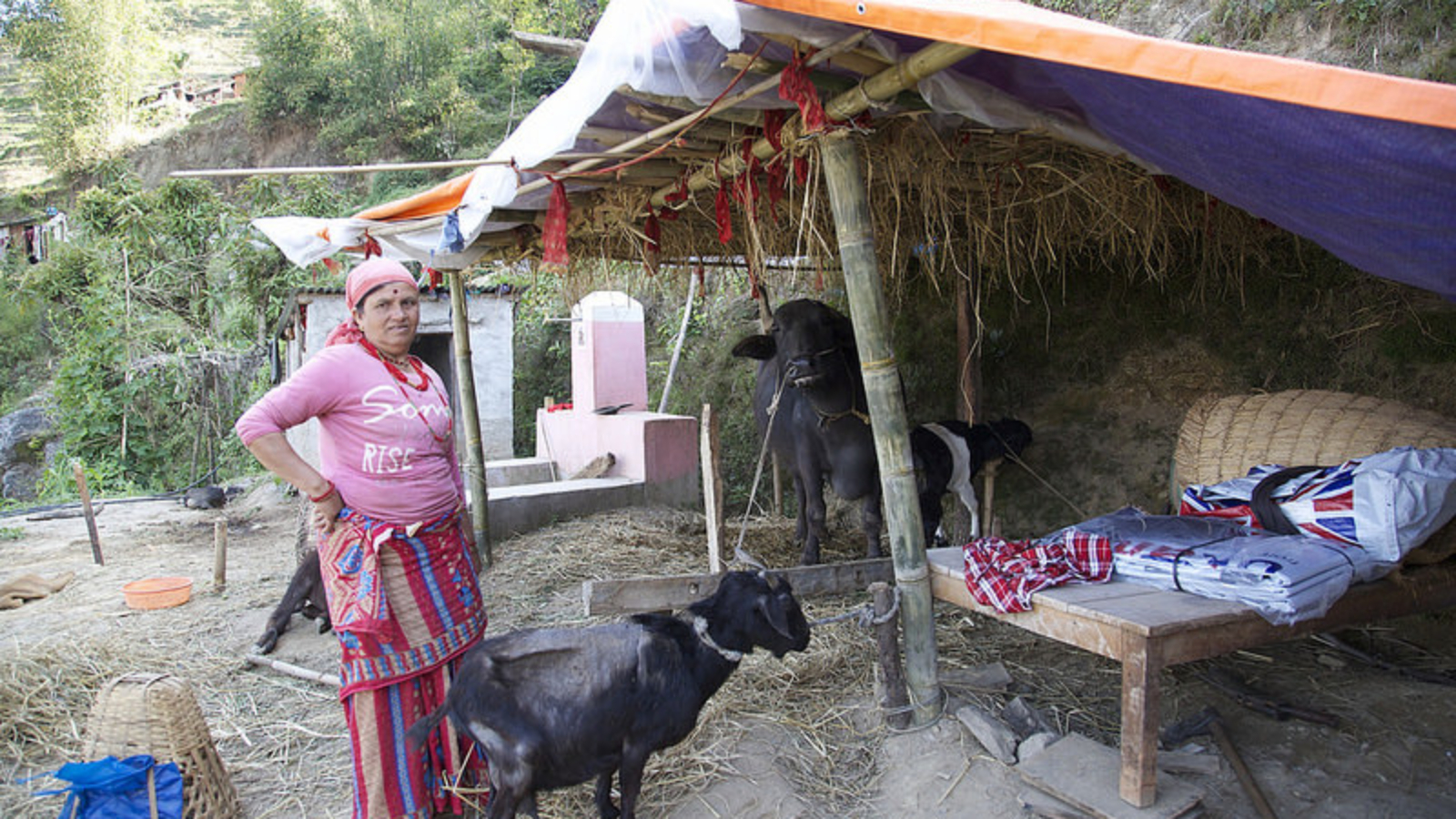By Kate Schecter and Srijana Thapa
This past April, Nepal’s massive earthquake and its aftershocks killed 8,702 people and injured thousands more. The quakes also destroyed and damaged more than 750,000 houses. In many parts of Dolakha district, which bore the brunt of the earthquake and first large aftershock, more than 95 percent of homes and buildings have been destroyed or severely damaged. In some villages, nearly all homes were destroyed.
Private and public organizations in the U.S., India, China, and other countries have pledged over $4 billion in donations for relief and reconstruction in Nepal. Yet only a fraction of that money has been disbursed to help those left homeless and, in many cases, destitute.
The lack of effective reconstruction has nothing to do with acts of nature. Nepal’s political unrest has severely impeded relief and rebuilding efforts. The unrest has been driven by both internal and external factors.
Nepal’s government drafted and recently passed a new constitution that establishes a federal system. While Nepal’s main political parties support it, a very vocal and well-organized minority opposes it. One grievance is that a smaller percentage of the parliament will now be elected by proportional representation – 45 percent, compared with 58 percent under the previous post-war interim constitution. The proportional representation system has helped more members of indigenous and low-caste groups, historically repressed and marginalized, get elected.
But a more important issue is a set of provisional provincial boundaries; the permanent demarcations will be decided at a later time. Some ethnic communities are unhappy with the proposed boundaries. This disquiet has been especially intense in the Terai, Nepal’s long southern lowland strip bordering India. In recent years, tensions have flared up between lowlanders and the highlanders who have migrated there over the past few decades. Protests have turned violent, with more than 50 people killed.
In the past weeks, this internal unrest has been intensified by an unannounced blockade by India, Nepal’s influential neighbor. The official explanation for the blockade is that it protects Indian truck drivers from marauders on Nepalese roads. Its imposition in the midst of Nepalese debate and even violence about a new constitution raised questions about India’s desire to seek even more influence in Nepal. Whatever the facts, the impact has been dire. The steep decline in imports from India means fuel and cooking gas shortages. Schools have been shut down, businesses are closing, and long distance movement of people and goods is restricted. In addition, medicine stocks are declining, along with supplies of other necessities.
Low medicine reserves raise the risk of untreated communicable diseases, including those transmitted by livestock animals. Many poor Nepalese farmers are sharing space with their livestock that, as the main source of household income in Nepal, also need shelter and protection from the elements. These conditions are difficult, often unsanitary, and potential breeding grounds for disease epidemics.
Fuel shortages could result in even worse suffering as Nepal approaches winter. Temperatures in Nepal can drop to 35 degrees Fahrenheit. With so many people living in temporary shelters and fuel supplies low, the risk of cold-related illnesses, especially with the young and elderly, is nearly certain. The building, waterproofing, and winterization of homes are critical.
Building proper shelters will become even more difficult if the fuel shortages persist. Lacking access to gas, Nepalese could turn to wood for fuel. Cutting down forests for heating purposes will further reduce the supply of lumber for new homes and other structures. In addition, it could lead to soil erosion, and contribute to the kinds of landslides that destroyed so many homes in the quakes.
With high-profile conflicts such as those in Syria and Iraq dominating the headlines, it can be easy to lose interest in a small country that was devastated by natural disaster. That cannot be allowed to happen with Nepal. The country’s domestic and foreign political disputes have prevented the reconstruction for which many nations have pledged aid. It will take political will, possibly including that of the larger international community, to resolve the governance impasse and enable aid to finally reach those who need it. Thousands of lives depend on it.
*****
*****
Kate Schecter is President and CEO of World Neighbors, a global development group with offices in Washington, D.C. and Oklahoma City. Srijana Thapa is World Neighbors South Asia Regional Director.
[Photo courtesy of DFID – U.K. Department for International Development]
